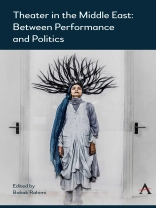The collected essays from noteworthy dramatists and scholars in this book represent new ways of understanding theater in the Middle East not as geographical but transcultural spaces of performance. What distinguishes this book from previous works is that it offers new analysis on a range of theatrical practices across a region, by and large, ignored for the history of its dramatic traditions and cultures, and it does so by emphasizing diverse performances in changing contexts. Topics include Arab, Iranian, Israeli, diasporic theatres from pedagogical perspectives to reinvention of traditions, from translation practices to political resistance expressed in various performances from the nineteenth century to the present.
Tabella dei contenuti
Introduction, Babak Rahimi (University of California, San Diego); I. Pedagogy and Tradition; 1. Teaching Middle Eastern theatre: challenges, opportunities, and rewards, Michael Malek Najjar (University of Oregon); 2. Harem entertainers: female performers in Qajar courts, Rana Salimi (University of California, San Diego); 3. Nehad Selaiha and the Egyptian theatre, Marvin Carlson (The City University of New York); 4. The re-invention of tradition in Moroccan theatre: from postcolonial hybridity to women’s empowerment, Khalid Amine (Abdelmalek Essaadi University, Tetouan, Morocco); II. Politics and Nation; 5. Artistic practice and production at the Jenin freedom theatre: the intersection of the personal and the political, Gary M. English (University of Connecticut); 6. Domestic arts: Sigalit Landau, Emily Jacir, and Israel-Palestine, Shelley Salamensky (University of Louisville); 7. Radio drama by and about Syrian refugees: reimagining the nation on Souriali, Edward Ziter (NYU); 8. No demand no supply: documentary theatre transforming the mainstream media, Sahar Assaf (American University of Beirut).
Circa l’autore
Babak Rahimi is Director of the Program for the Study of Religion and Associate Professor of Culture, Communication at the Department of Literature, UC San Diego.












